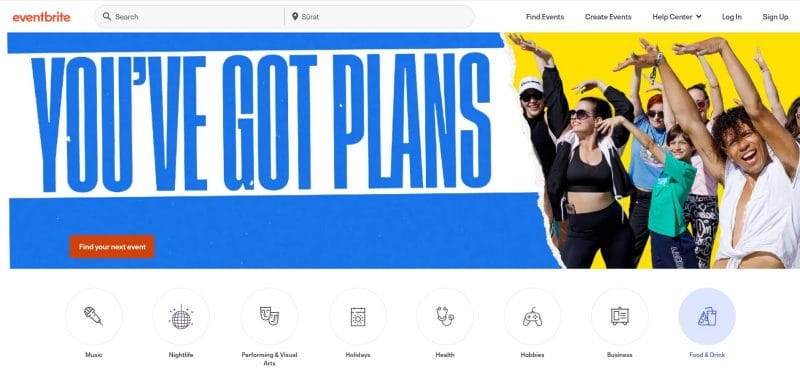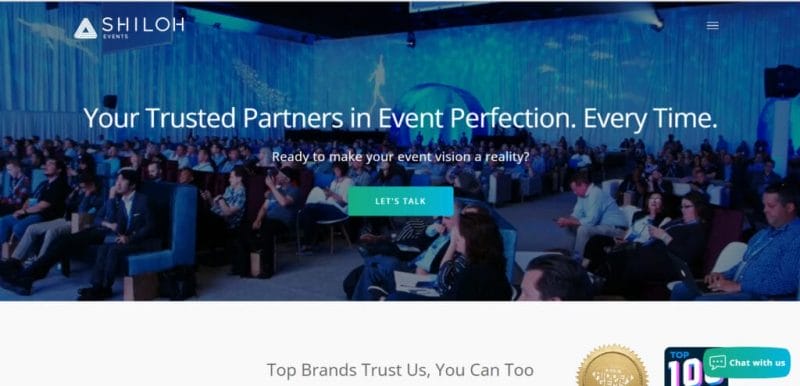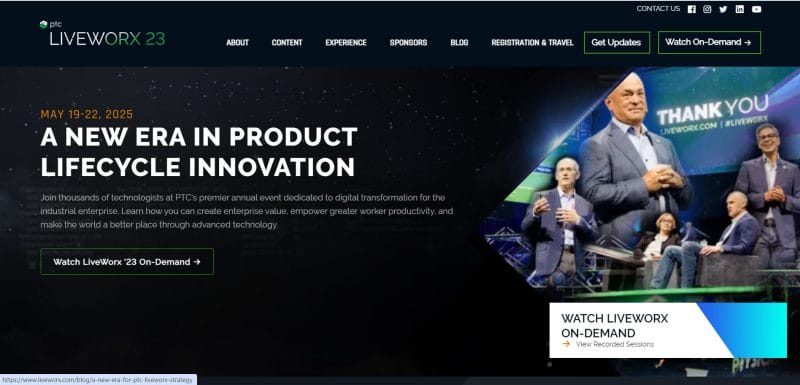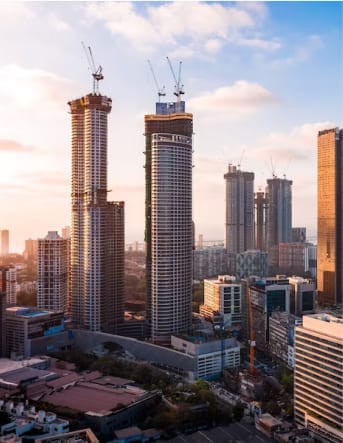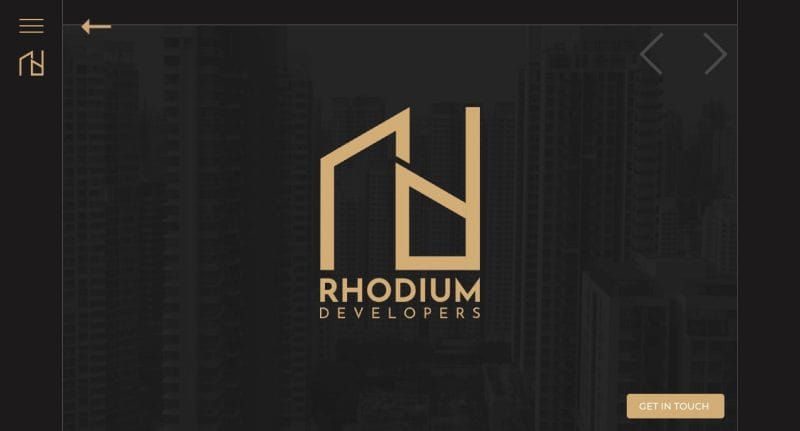WordPress is an incredibly versatile and popular content management system that can be used to create various websites, including those for events. Event websites play a critical role in the success of any event, as they are often the first point of contact between organizers and potential attendees. Having a well-designed, modern website that is also easy to use and manage is key to ensuring a successful event. With the right plugins, themes, and settings, you can quickly build a professional-looking website that fits your event’s needs. In this article, we will provide step-by-step instructions on how to create and manage a successful event website using WordPress.
Choosing the Right WordPress Theme
When looking for an appropriate WordPress theme for your event website, make sure that it has a responsive design that looks great on all devices and screen sizes. A responsive design allows your site visitors to easily interact with content no matter their device or platform preference. Your site visitors should be able to view and interact with everything on the page without having to zoom in or out.
Also, pay attention to customization options. A good WordPress theme should allow you to customize colors, fonts, and layouts without needing extensive coding knowledge. Some themes come with pre-built templates that are easy to customize while others offer more flexibility in terms of design customization. You should choose a theme that allows you to make changes quickly and easily. Additionally, it’s important to check if the theme supports all popular plugins and integrates seamlessly with them.
If you are looking for an event-focused theme, there are several popular options to consider. Several themes offer extensive features for managing events and selling tickets online. They also have a user-friendly interface and customizable templates that allow you to create beautiful pages for your events easily. Many of them include a robust calendar system with the ability to integrate with other plugins or widgets seamlessly.
Installing and Configuring WordPress Plugins
 Plugins are software components that extend the functionality of WordPress beyond its basic features, allowing you to add new features, improve performance, or enhance security.
Plugins are software components that extend the functionality of WordPress beyond its basic features, allowing you to add new features, improve performance, or enhance security.
Several must-have plugins will improve your site's functionality and user experience. Firstly, security should be a top priority when creating any website. Installing a security plugin like Wordfence or iThemes Security can provide real-time protection against malware attacks and hacking attempts. These plugins offer features like two-factor authentication and login limits to ensure your website remains secure.
Secondly, event websites require efficient communication with attendees. Installing a plugin like an Event Espresso or WP Event Manager allows you to seamlessly create customizable registration forms for attendees to register for events. Additionally, these plugins allow you to manage ticket sales and attendee information in one place.
To start installing a plugin on your WordPress website, you must first log in to your dashboard area. Navigate to the “Plugins” section from the left-hand menu within your dashboard area. From here, you can search for a specific plugin by keyword or browse through a list of popular plugins featured.
Here is a list of the top 10 WordPress page builder plugins that will help you design like a pro in no time. Click Here
Our technical experts can help fix any issue you are having with WordPress, regardless of its complexity.
Creating Event Pages
 Here are the steps to create an event page on your WordPress website:
Here are the steps to create an event page on your WordPress website:
Install an Event Plugin: To create an event page on your WordPress website, you will need an event plugin. There are many event plugins available for WordPress, such as The Events Calendar, Event Espresso, and WP Event Manager. Choose the plugin that suits your needs and install it on your website.
Create a new Event: After installing the event plugin, you can create a new event by clicking on the ‘Add New Event’ button. Here you can fill in the event title, description, date, time, location, and other details related to the event.
Customize the Event Page: Once you have created the event, you can customize the event page according to your needs. You can add images, videos, and other media to make the event page more appealing. You can also add a registration form, ticket purchase options, and other features to make it easier for visitors to sign up for the event.
Add Ticket Information: If you are selling tickets or registrations for your event, you will want to include this information on your event page. Your event plugin may have built-in ticketing functionality, or you may need to use a third-party ticketing plugin. To add ticket information to your event page, you will want to include: ticket prices,
ticket types, and the ticket purchase link.
Publish the Event Page: After you have customized the event page, you can publish it by clicking on the ‘Publish’ button. The event page will then be live on your website, and visitors can view the details about the event and register for it.
Creating a Customizable Event Calendar
A customizable event calendar is a useful tool to keep track of upcoming events. By adding and categorizing events, users can easily view their schedules and plan accordingly. Here are some tips for creating a customizable event calendar:
- When adding events to your calendar, be sure to include all necessary information such as the date, time, location, and description of an event. This will ensure that users have all the details they need at their fingertips.
- Categorizing events makes it easier for users to filter the calendar based on specific types of events they are interested in. Consider using categories such as ‘community’, ‘sports’, ‘charity’, or ‘entertainment’ to help organize your calendar.
- Displaying the calendar in an easy-to-read format is essential. Use color-coded systems or icons to differentiate between types of events and make them visually appealing.
Adding Social Media Integration
Social media has become an essential component of modern-day event marketing. Social platforms such as Facebook, Twitter, and Instagram provide an easy way to reach a large audience without spending money on traditional advertising methods. WordPress websites for events are the perfect way to keep attendees informed about event details, schedule updates, and changes.
Adding social media integration to WordPress websites can increase engagement with potential attendees, boost ticket sales, and generate excitement around the event. Integrating social media into your website is relatively easy. It can be achieved through plugins that offer social sharing buttons, live feeds, and other features that allow users to connect with your accounts on different platforms.
Our technical experts can help fix any issue you are having with WordPress, regardless of its complexity.
By integrating social media into your WordPress website for events you can also create a more immersive experience for attendees by providing them with real-time updates from speakers or performers. This helps build anticipation and excitement around the event even before it takes place.
Incorporating Email Marketing
Email marketing can be a powerful tool for promoting your WordPress event website. While social media platforms like Facebook and Twitter provide valuable opportunities to engage with your audience, email marketing offers more direct communication.
By building an email list of interested attendees, you can keep them informed about upcoming events, special promotions, or exclusive content. This helps to build anticipation and excitement around your event while also increasing the chances of ticket sales.
To effectively incorporate email marketing into your WordPress event website, it's important to start by creating compelling opt-in forms that encourage visitors to subscribe. You can then segment your list based on interests or past attendance history, allowing you to send targeted messages that resonate with specific groups of subscribers.
We provide comprehensive email marketing services tailored to meet the unique needs of our clients, ensuring targeted campaigns and impactful communication. Click here
Optimizing the Website for Search Engines
To ensure that your event website ranks higher in search engine results pages (SERP), you need to focus on keyword research, on-page optimization, and link building.
Keyword research is the foundation of any SEO strategy. It involves researching the words or phrases that your target audience uses when searching for events similar to yours. Once you have identified these keywords, incorporate them into your website’s content strategically. Ensure that you use long-tail keywords along with shorter ones so that your content covers all aspects of the topic at hand.
On-page optimization involves making changes to the content and structure of your website to make it more SEO-friendly. This includes optimizing your titles, descriptions, headers, images, and URLs with relevant keywords. By including relevant keywords in these elements, you make it easier for search engines to understand what your website is about and rank it accordingly.
Link building refers to the process of acquiring links from other websites that point back to yours. This helps increase the authority and credibility of your website in the eyes of search engines.
To learn SEO best practices, it is important to first understand what SEO is and how it works. Learn More
Final Take
WordPress is a great option for event websites given its ease of use and customizability. With the steps outlined in this article, you can start creating your website for any type of event. Take time to explore the various options available in WordPress, including themes and plugins, so that you can create a website that best suits your needs. Also, WordPress has built-in SEO capabilities, allowing your website to rank higher in search engine results. Keep exploring more tutorials on how to use WordPress so that you can improve your skills with the platform.
Take advantage of its powerful features today by downloading WordPress and creating an amazing event website!


